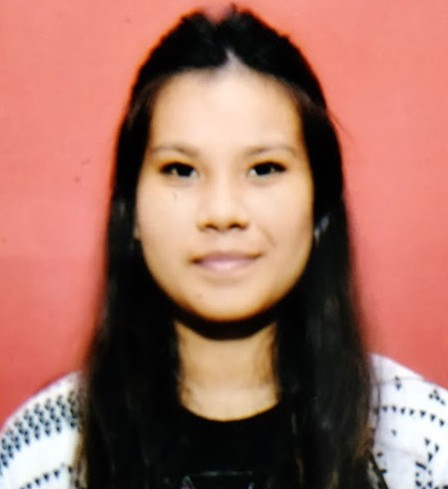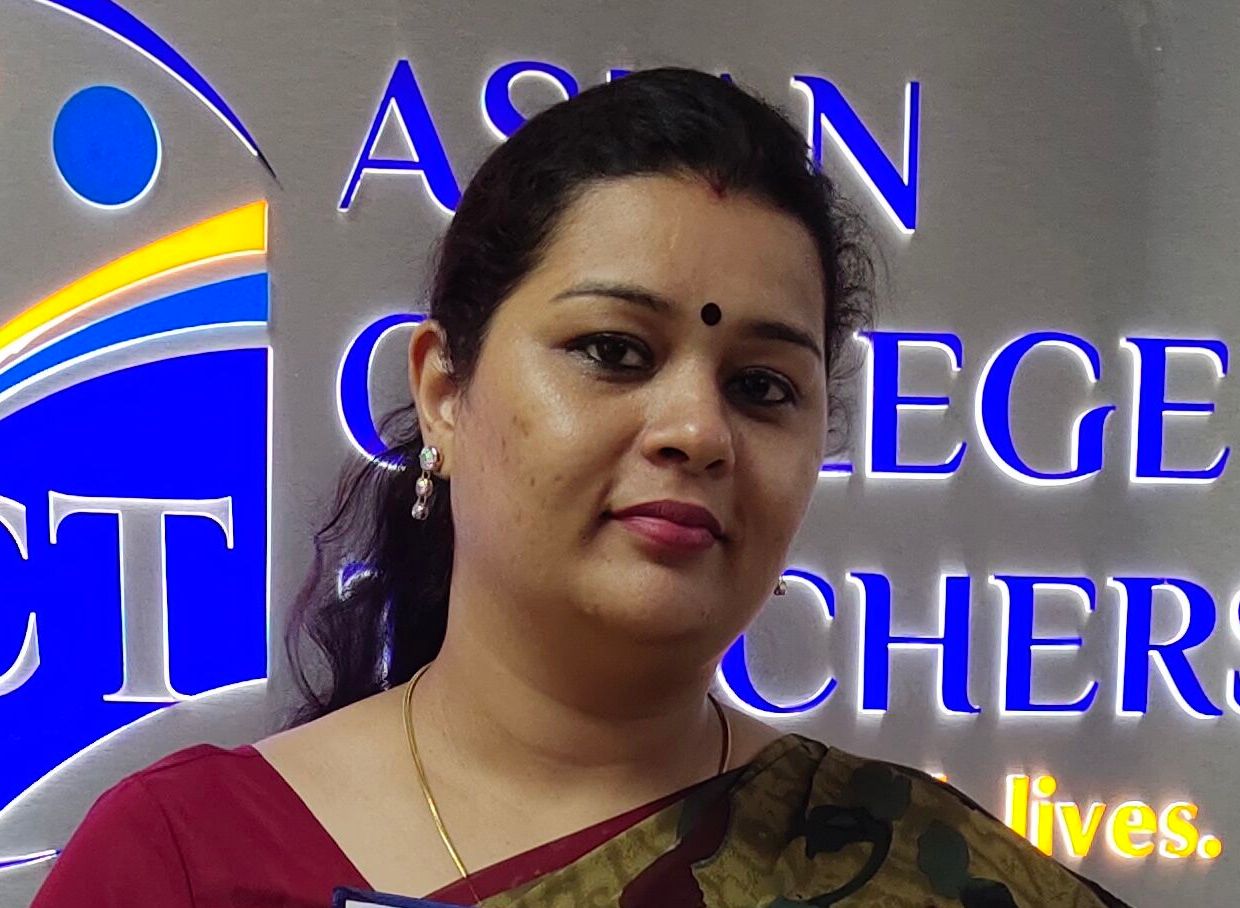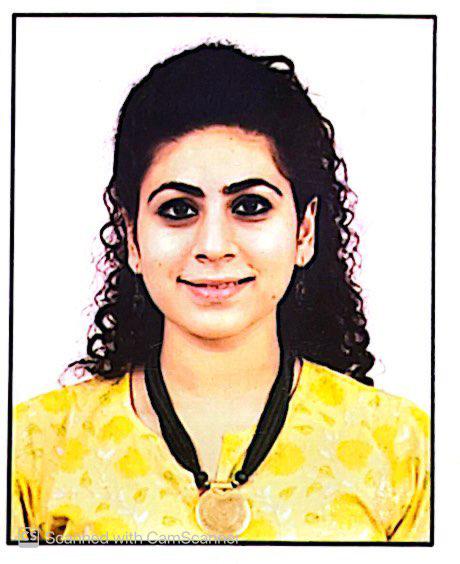Special Education Courses in Delhi - Asian College of Teachers
With the rapid expansion of inclusive classrooms globally, there has been a gradual rise in the need for trained educators with Special Educational Needs knowledge. With Asian College of Teachers, UK's Special Needs teacher training course in Delhi, you can acquire the requisite skills to find opportunities as they are designed to meet the industry demands with a detailed focus on acquainting aspirants/ working teaching professionals with an in-depth knowledge about ADHD, Autism and different Learning Disabilities. All our online special education courses for teachers in Delhi cover a wide variety of areas relating to SEN and come in 3 different levels - Certificate, Diploma and P G Diploma.
Special Education : The Special Education courses in Delhi offered by Asian College of Teachers focus on various Learning Disabilities, ADHD, and Autism, to acquaint you with the varied methods and ways to identify, address and handle learners with special needs in an inclusive classroom. The SEN Courses in Delhi puts its focus on the various ways to handle learners with disabilities in general education classrooms. The course will prepare you with the various approaches to teach special children while making a significant contribution as an educator. The course is available in 3 different levels: Certificate, Diploma and Postgraduate Diploma.
Autism : ACT’s autism teacher training course in delhi has been developed for those willing to pursue a career in teaching in an inclusive classroom. The course equips you with an exhaustive knowledge base regarding Autism and makes you aware of its varied aspects. It trains both would-be and working teaching professionals with the techniques to handle autistic kids in the classroom. The Autism Course in Delhi focuses on the various facets of autism and related disabilities and helps learners with a better learning experience. The Autism course comprises 3 levels - Certificate, Diploma, and Post Graduate Diploma.
ADHD : Asian College of Teachers offers a detailed adhd course for teachers in Delhi that have been developed by experts in the field, designed for both aspiring and working teachers to equip them with specific and functional strategies for effective handling of learners with ADHD in a typical classroom set-up. This ADHD course in Delhi aims at educating you with essential information regarding ADHD so that you can face every challenge with ease and confidence. The course is offered in 3 levels - Certificate, Diploma and Postgraduate Diploma.
Learning Disabilities : If you have a passion for teaching and have the will to venture into the field of teaching special kids and gain in-depth knowledge regarding Learning Disabilities, then enrolling with us for a learning disability course in Delhi would be beneficial for you. Completing any of the three offered levels is sure to benefit you in making a genuine difference as a special educator in an inclusive classroom.
This certificate course in learning disability also provides you with a thorough idea and the types of behavior related to the various types of learning disabilities along with the ways to identify them in learners. Acquainting you with the appropriate strategies and approaches to maintain a proper learning environment in the classroom, the course aims to transform individuals into global teaching professionals. It is offered in 3 distinct levels - Certificate, Diploma and Postgraduate Diploma.
Live Online SEN Workshop : Asian College of Teacher’s live online special education certification programs is the newest addition to SEN teacher training and has been developed for teachers willing to update themselves with the latest trends in their profession along with honing their skills to emerge as efficient educators.
The live online special education courses for teachers in Delhi sees the facilitators and instructors as guides while creating a platform for participants to become active collaborators rather than being just mere learners. This online workshop from ACT creates opportunities for trainees across the globe where they get to attend live online classes while interacting with their facilitators and peers and learn while participating in online activities.
* For all PG Diploma courses, candidates can pursue a Recognising and Supporting Children with Special Needs at additional fees.
Duration and Fees
| Course Name | Duration | Eligibility | Price |
|---|---|---|---|
| Certificate in Special Education (ADHD, Autism and Learning Disabilities) | 4 months | 10+2 | 18000 INR |
| Diploma in Special Education (ADHD, Autism and Learning Disabilities) | 8 months | 10+2 | 35000 INR |
| PG Diploma in Special Education (ADHD, Autism and Learning Disabilities) | 12 months | Bachelor's Degree | 37000 INR (Single Certificate), 47000 INR (Triple Certificate) |
| Certificate in Learning Disabilities | 4 months | 10 + 2 | 13000 |
| Diploma in Learning Disabilities | 8 months | 10 + 2 | 18000 |
| PG Diploma in Learning Disabilities | 12 months | Bachelor's Degree | 30000 INR (Single Certificate), 37000 INR (Triple Certificate) |
| Certificate in Autism | 4 months | 10 + 2 | 13000 |
| Diploma in Autism | 8 months | 10 + 2 | 18000 |
| PG Diploma in Autism | 12 months | Bachelor's Degree | 30000 INR (Single Certificate), 37000 INR (Triple Certificate) |
| Certificate in ADHD | 4 months | 10 + 2 | 13000 |
| Diploma in ADHD | 8 months | 10 + 2 | 18000 |
| PG Diploma in ADHD | 12 months | Bachelor's Degree | 30000 INR (Single Certificate), 37000 INR (Triple Certificate) |
| SEN for Parents | 4 months | 10+2 | 13500 |
Curriculum
ADHD
- ADHD Phase 1: Understanding students with ADHD
- ADHD Phase 2 : Understand the common characteristics of HFA/AS
- ADHD Phase 3 : Discover how your students think
- ADHD Phase 4 : Nurture students' social skills
- ADHD Phase 5 : Encourage language reciprocity
Autism
- AUTISM Phase 1 : Meet your students with Autism
- AUTISM Phase 2 : Understand the common characteristics of HFA/AS
- AUTISM Phase 3 : Discover how your students think
- AUTISM Phase 4 : Nurture students' social skills
- AUTISM Phase 5 : Encourage language reciprocity
Learning Disabilities
- LD Phase 1 : Understanding and identifying students with LDs
- LD Phase 2 : Making sense of the IEPs
- LD Phase 3 : Learning the right teaching strategies
- LD Phase 4 : Helping students with word identification problems
- LD Phase 5 : Helping students with reading comprehension problems
ADHD
- ADHD Phase 1 : Understanding Students with ADHD
- ADHD Phase 2 : Problem-Solving for Academic Performance
- ADHD Phase 3 : Classroom Beliefs and Rules
- ADHD Phase 4 :Preplanning and Facilitating an ADHD-Friendly Classroom
- ADHD Phase 5 : Role of Family
- ADHD Phase 6 : Clinical Diagnosis of ADHD
Down Syndrome
- Down Syndrome – Definition and History
- Identifying Down Syndrome in Children
- Causes and Complications of Down Syndrome
- Teaching Children with Down Syndrome
- Inclusive Education for Children with Down Syndrome
Autism
- AUTISM Phase 1 : Meet your Students with Autism
- AUTISM Phase 2 : Understand the common characteristics of HFA/AS
- AUTISM Phase 3 : Nurture Students' Social Skills
- AUTISM Phase 4 : Encourage Language Reciprocity
- AUTISM Phase 5 : Work with Sensory Sensitivities
- AUTISM Phase 6 : Autism and Inclusive Education
- AUTISM Phase 7 :Transition from Adolescence to Adulthood
- AUTISM Phase 8 :
- Asperger Syndrome (AS)
- High Functioning Autism (HFA)
- Fragile X Syndrome (FXS).
Learning Disabilities
- LD Phase 1 :Understanding Learning Disabilities
- LD Phase 2 :Identifying Students with LDs
- LD Phase 3 :Modifying Your Classroom
- LD Phase 4 :Managing Student Behaviour
- LD Phase 5 :Instructional Methods to help students with LD overcome challenges in an Inclusive Classroom
- LD Phase 6 :Learning Strategies and Assessment Techniques for Students with Learning Disabilities
- LD Phase 7 :Dyslexia
- LD Phase 8 :Dysgraphia and Dyscalculia
ADHD
- ADHD Phase 1 :Understanding students
- ADHD Phase 2 :Diagnostic Process
- ADHD Phase 3 :Are they putting in the Effort?
- ADHD Phase 4 :ADHD and Brain Activation
- ADHD Phase 5 :ADHD and Activity Level
- ADHD Phase 6 :Role of Parents
- ADHD Phase 7 :Clinical Diagnosis of ADHD
- ADHD Phase 8 :Down Syndrome
- ADHD Phase 9 :Role of Teacher and Parents for Supporting Children with ADHD
Down Syndrome
- Down Syndrome – Definition and History
- Identifying Down Syndrome in Children
- Causes and Complications of Down Syndrome
- Teaching Children with Down Syndrome
- Inclusive Education for Children with Down Syndrome
Autism
- AUTISM Phase 1 :Meet Autistic Students
- AUTISM Phase 2 :Understand the common characteristics of HFA/AS
- AUTISM Phase 3 :Discover how your students think
- AUTISM Phase 4 :Nurture students' social skills
- AUTISM Phase 5 :Encourage language reciprocity
- AUTISM Phase 6 :Autism and Inclusive Education
- AUTISM Phase 7 :Transition from Adolescence to Adulthood
- AUTISM Phase 8 a :Asperger's Syndrome
- AUTISM Phase 8 b :Fragile X Syndrome
- AUTISM Phase 8 c :High Functioning Autism
- AUTISM Phase 9 :Types of Play Skills for Autistic Learners
Learning Disabilities
- LD Phase 1 :Understanding Learning Disabilities
- LD Phase 2 :Identifying Students with LDs
- LD Phase 3 :Making sense of the IEPs
- LD Phase 4 :Understanding Service Locations
- LD Phase 5 :Learning the Right Teaching Strategies
- LD Phase 6 : Learning Strategies and Assessment Techniques for Students with Learning Disabilities
- LD Phase 7 :Dyslexia
- LD Phase 8 :Dysgraphia and Dyscalculia
- LD Phase 9 : Language Processing Disorder
Certificate in Autism
- Phase 1: Meet your Students with Autism
- Phase 2: Understand the Common Characteristics of HFA/AS
- Phase 3: Discover How Your Students Think
- Phase 4: Nurture Students & Social Skills
- Phase 5: Encourage Language Reciprocity
- Phase 6: Work with Sensory Sensitivities
- Phase 7: Nurture Special Interests
- Phase 8: Encourage Homework Completion
Diploma in Autism
- Phase 1: Meet your Students with Autism
- Phase 2: Understand the Common Characteristics of HFA/AS
- Phase 3: Discover How Your Students Think
- Phase 4: Nurture Students & Social Skills
- Phase 5: Encourage Language Reciprocity
- Phase 6: Work with Sensory Sensitivities
- Phase 7: Nurture Special Interests
- Phase 8: Encourage Homework Completion
- Phase 9: Counter Runaway Emotions and Meltdowns
- Phase 10: Redirect Violent Fixations
- Phase 11: Foster Attentiveness
- Phase 12: Plan for the Future
- Phase 13:
- Asperger Syndrome (AS)
- High Functioning Autism (HFA)
- Fragile X Syndrome (FXS)
- Phase 14:
- Landau-Kleffner Syndrome (LKS)
- Prader-Willi Syndrome (PWS)
- Rett Syndrome (RS)
- Phase 15:
- Tardive Dyskinesia (TD)
- Williams Syndrome (WS)
- Pathological Demand Avoidance (PDA)
- Phase 16: Autism and Inclusive Education
- Phase 17: Transition from Adolescence to Adulthood
Post Graduate Diploma in Autism
- Phase 1: Meet your Students with Autism
- Phase 2: Understand the Common Characteristics of HFA/AS
- Phase 3: Discover How Your Students Think
- Phase 4: Nurture Students & Social Skills
- Phase 5: Encourage Language Reciprocity
- Phase 6: Work with Sensory Sensitivities
- Phase 7: Nurture Special Interests
- Phase 8: Encourage Homework Completion
- Phase 9: Counter Runaway Emotions and Meltdowns
- Phase 10: Redirect Violent Fixations
- Phase 11: Foster Attentiveness
- Phase 12: Plan for the Future
- Phase 13:
- Asperger Syndrome (AS)
- High Functioning Autism (HFA)
- Fragile X Syndrome (FXS)
- Phase 14:
- Landau-Kleffner Syndrome (LKS)
- Prader-Willi Syndrome (PWS)
- Rett Syndrome (RS)
- Phase 15:
- Tardive Dyskinesia (TD)
- Williams Syndrome (WS)
- Pathological Demand Avoidance (PDA)
- Phase 16: Autism and Inclusive Education
- Phase 17: Transition from Adolescence to Adulthood
- Phase 18: Autism Spectrum Disorder affects Play
- Phase 19: Types of Play Skill for Autistic Learners
- Phase 20: Life Skills Training
- Phase 21: Reading, Literacy and Comprehension for children with autism
- Phase 22: Understanding Sensory Processing Issues
Certificate in ADHD
- Phase 1: Understanding Students with ADHD
- Phase 2: The Diagnostic Process
- Phase 3: Are They Putting in the Effort?
- Phase 4: ADHD and Brain Activation
- Phase 5: ADHD and Activity Level
- Phase 6: Attention and ADHD
- Phase 7: The Emotional Impact of ADHD
- Phase 8: Memory
Diploma in ADHD
- Phase 1: Understanding Students with ADHD
- Phase 2: The Diagnostic Process
- Phase 3: Are They Putting in the Effort?
- Phase 4: ADHD and Brain Activation
- Phase 5: ADHD and Activity Level
- Phase 6: Attention and ADHD
- Phase 7: The Emotional Impact of ADHD
- Phase 8: Memory
- Phase 9: Problem-Solving for Academic Performance
- Phase 10: Classroom Beliefs and Rules
- Phase 11: Preplanning and Facilitating an ADHD-Friendly Classroom
- Phase 12: Student Self-Reliance
- Phase 13: Previous Understanding about ADHD was a myth
- Phase 14: Role of Family
- Phase 15: Clinical Diagnosis of ADHD
Down Syndrome
- Definition and History
- Identifying Down Syndrome in Children
- Causes and Complications of Down Syndrome
- Teaching Children with Down Syndrome
- Inclusive Education for Children with Down Syndrome
PG Diploma in ADHD
- Phase 1: Understanding Students with ADHD
- Phase 2: The Diagnostic Process
- Phase 3: Are They Putting in the Effort?
- Phase 4: ADHD and Brain Activation
- Phase 5: ADHD and Activity Level
- Phase 6: Attention and ADHD
- Phase 7: The Emotional Impact of ADHD
- Phase 8: Memory
- Phase 9: Problem-Solving for Academic Performance
- Phase 10: Classroom Beliefs and Rules
- Phase 11: Preplanning and Facilitating an ADHD-Friendly Classroom
- Phase 12: Student Self-Reliance
- Phase 13: Previous Understanding about ADHD was a myth
- Phase 14: Role of Family
- Phase 15: Clinical Diagnosis of ADHD
- Phase 16: Role of Teacher and Parents
- Phase 17: Deafness
- Phase 18: Orthopaedic Impairment
- Phase 19: Intellectual Disabilities
- Phase 20: Multiple Disabilities
(Additional course: Recognising and Supporting Children with Special Needs).
Certificate in Learning Disabilities
ACT also offers Live Online SEN Seminars regarding various related topics to prepare potential or working professionals from the teaching/SEN backgrounds to develop newer outlook, upgrade their skills and expand their insights into the various aspects of teaching special children.
- Phase 1: Understanding Learning Disabilities
- Phase 2: Identifying Students with LDs
- Phase 3: Making Sense of the IEP
- Phase 4: Understanding Service Locations
- Phase 5: Learning the Right Teaching Strategies
- Phase 6: Helping Students with Word Identification Problems
- Phase 7: Helping Students with Reading Comprehension Problems
- Phase 8: Helping Students with Written Expression Problems
Diploma in Learning Disabilities
- Phase 1: Understanding Learning Disabilities
- Phase 2: Identifying Students with LDs
- Phase 3: Making Sense of the IEP
- Phase 4: Understanding Service Locations
- Phase 5: Learning the Right Teaching Strategies
- Phase 6: Helping Students with Word Identification Problems
- Phase 7: Helping Students with Reading Comprehension Problems
- Phase 8: Helping Students with Written Expression Problems
- Phase 9: Helping Students with Math Reasoning and Calculation Problems
- Phase 10: Modifying Your Classroom
- Phase 11: Managing Student Behaviour
- Phase 12: Linking Home and School
- Phase 13: Instructional Methods to help students with LD overcome challenges in an Inclusive Classroom
- Phase 14: Learning Strategies & Assessment Techniques for students with LD
- Phase 15: Visual and Auditory Processing Disorder
- Spatial Relation
- Visual Agnosia
- Visual Closure
- Visual Discrimination
- Phase 16: Non-Verbal Disability
- Phase 17: Specific Learning Disabilities:
- Dyslexia
- Phonemic Awareness
- Phonics
- Fluency
- Vocabulary
- Text Comprehension
- Phase 18:
- Dysgraphia
- Dyscalculia
P G Diploma in Learning Disabilities
- Phase 1: Understanding Learning Disabilities
- Phase 2: Identifying Students with LDs
- Phase 3: Making Sense of the IEP
- Phase 4: Understanding Service Locations
- Phase 5: Learning the Right Teaching Strategies
- Phase 6: Helping Students with Word Identification Problems
- Phase 7: Helping Students with Reading Comprehension Problems
- Phase 8: Helping Students with Written Expression Problems
- Phase 9: Helping Students with Math Reasoning and Calculation Problems
- Phase 10: Modifying Your Classroom
- Phase 11: Managing Student Behaviour
- Phase 12: Linking Home and School
- Phase 13: Instructional Methods to help students with LD overcome challenges in an Inclusive Classroom
- Phase 14: Learning Strategies & Assessment Techniques for students with LD
- Phase 15: Visual and Auditory Processing Disorder
- Spatial Relation
- Visual Agnosia
- Visual Closure
- Visual Discrimination
- Dyslexia
- Phonemic Awareness
- Phonics
- Fluency
- Vocabulary
- Text Comprehension
- Dysgraphia
- Dyscalculia
- Social and Emotional Development of Students with LD
- Social Skill Training
- Decision Making and Problem-Solving Skill
(Additional course: Recognising and Supporting Children with Special Needs).
SEN-Live Online Workshop
| Empowering Students with Learning Disabilities | coming soon | 3 pm to 6pm (IST) | Saturday |
| Managing ADHD in an Inclusive Classroom | coming soon | 3 pm to 6pm (IST) | Saturday |
| Supporting Children with Autism Spectrum Disorder (ASD) in an Inclusive Classroom | coming soon | 3 pm to 6pm (IST) | Saturday |
| Managing EBD (Emotional Behavioural Disorders) | 7th June 2025 | 3 pm to 6pm (IST) | Saturday |
| Role of IEP with Supporting Diverse Learners in Inclusive Classroom | 14th June 2025 | 3 pm to 6pm (IST) | Saturday |
| Differentiated Instruction and Assessment | 21st June 2025 | 3 pm to 6pm (IST) | Saturday |
| Art and Music Therapy for SEN students | 28th June 2025 | 3 pm to 6pm (IST) | Saturday |
ACT Admission and Support
- ACT's admission process is quite easy and hassle-free
- You can opt for any online payment scheme
- ACT's admission department will contact the candidates via mail or over phone
- Candidates can pay through any method using online transfer, debit or credit card
- Experienced and accomplished tutors provide guidance throughout the course
- Additional support of online videos and reference materials are given
- The course is flexible enough to allow candidates to learn at their own pace
- For academic queries, candidates can contact via email or raise a ticket
Career Opportunities
After completing our online special education teacher training courses, teachers get the opportunity to become an accomplished professional as:
- Class teacher in an inclusive classroom
- Assistant teacher in an inclusive classroom
- Shadow teacher
- School advisor/ counsellor
- Special Education curriculum developer
- Budding entrepreneur
- Parents with special children
After successfully completing a professional certificate course in Special Education, many new
and exciting doors of opportunities will open in your professional career. Due to the increased
awareness of Special Educational Needs, the prospects and opportunities for qualified and
certified special needs teachers are huge and will remain favourable in the coming decades.
Therefore, aspirants who are passionate about helping SEN learners in developing themselves,
after completing any of our special education courses online may well expect to get employed in
various positions that will enable them to work with the SEN learners with autism, ADHD, LD,
etc. anywhere around the world.
The qualifications and certificates will surely benefit those willing to open day care facilities or
crèche or are seeking opportunities in educating children with special needs. Since this course is
internationally recognized, it is beneficial for those willing to work across the globe and thus
helping you realise your dream of teaching anywhere of your choice.
Certification & Accreditation
The candidates will receive a globally recognized certificate from Asian College of Teachers.
- All ACT courses are accredited by International Association for Quality Assurance in Higher Education (QAHE)
- The prestigious EQAC - Education Quality Accreditation Commission has accredited Asian College of Teachers (ACT) that has met all the standards set by this Commission.
- ACT SEN courses are certified by CPD Certification Service, UK
- Accreditation Service for International Schools, Colleges and Universities (ASIC) a member of British Quality Foundation, has accredited Asian College of Teachers (ACT)
- Asian College of Teachers is a member of The National Association of Special Education Teachers (NASET)
- All ACT courses are endorsed by NCC Education, an awarding organisation and a global provider of British education
* ACT Special Education courses are NASET recognized which is the only national membership organization dedicated solely to meet the needs of special education teachers and those preparing to venture into this field. ACT is also an institutional member of International Association of Special Education (IASE) that promotes awareness and understanding of SEN individuals. The CPD Certification Service is an independent CPD accreditation centre working across all sectors, disciplines and further learning applications. These memberships and recognitions do provide our courses with an extra edge, helping you while looking for opportunities after completing our recognised courses.
SEN Courses Disclaimer
Asian College of Teachers Ltd, UK has designed an extensive range of Special Education courses for teachers to equip them with the skills apt for an inclusive classroom environment. The primary objective of these courses delivered by Asian College of Teachers (ACT) is to help teachers identify the learning difficulties or disabilities and understand the specific needs of diverse pupils. These courses neither make one a SEN practitioner, nor provide with a license for clinical practice. The ACT SEN courses are certified by CPD Certification Service (UK) and endorsed by NCC Education (UK). However, these courses are not approved, endorsed or recognised by any other National / Local governmental or non-governmental agencies /bodies.





